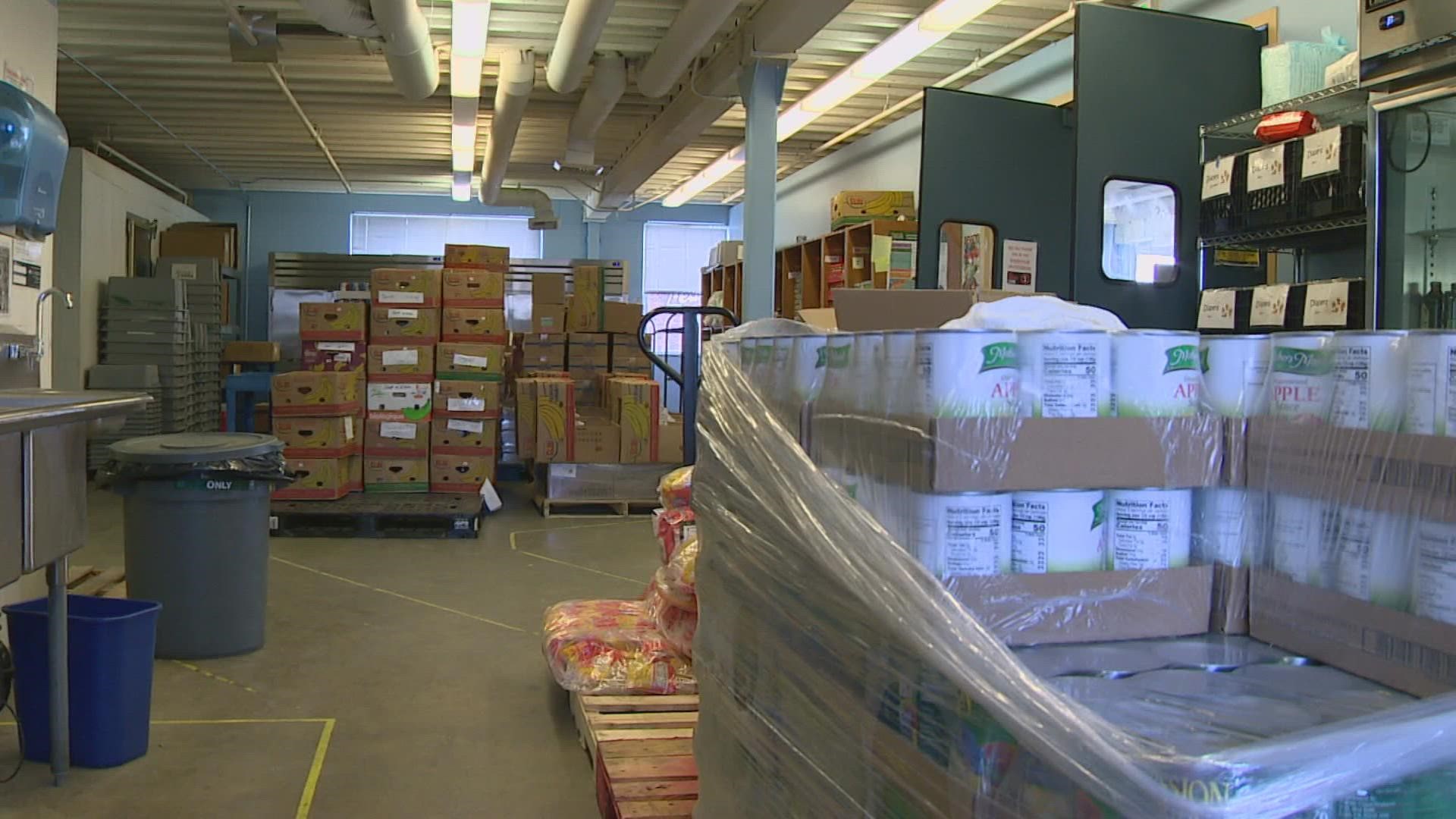SEDRO-WOOLLEY, Wash — Despite the COVID-19 pandemic becoming much more manageable and the nation's unemployment rate coming down significantly, Western Washington is starting to see longer lines at food banks because so many Americans just can't afford to live.
Visiting the Helping Hands Food Bank in Sedro-Woolley is simply a weekly way of life for Elizabeth Pole and her family.
Elizabeth's husband has a good job as a concrete worker, but it doesn't pay all the bills for their family of 4, including two special-needs children.
She stays at home with their two boys because day care is so expensive and hard to find.
"Milk prices have gone up around $3, cheese prices about $4. Gas is outrageous," Elizabeth says. "It's impossible."
Prices are climbing out of reach for both people using food banks and the food banks themselves.
According to the Feeding America food bank network, a truck load of peanut butter cost around $34,000 two years ago at this time.
Now it's $40,000.
The same amount of tuna has jumped from $46,000 to $57,000.
At Everett's Volunteers of America food distribution center, the number of people seeking boxes of free food is up nearly 25%.
Rising costs must be absorbed or passed on to the clientele who are in need themselves.
This comes at a time when donations are down.
"We're concerned about shortages," says VOA's Chris Hatch. "We're concerned about not having enough money to make food purchases."
Hatch says hungry families may have to do more with less.
"If current rates go as they are we could be forced to provide smaller boxes of food," says Hatch. "It could end up affecting what we can give to our families."
Back at Helping Hands, Executive Director Rebecca Skrinde said it's a simple matter of economics.
"We've surveyed our clientele," she says. "80% of them have jobs but their salaries did not rise 40% to cover groceries and gas."
That means families like Elizabeth's will continuing to struggle.
"If not for this food bank we would be screwed. Completely screwed," she says. "It's hard to survive. It is. It's really hard to survive."

